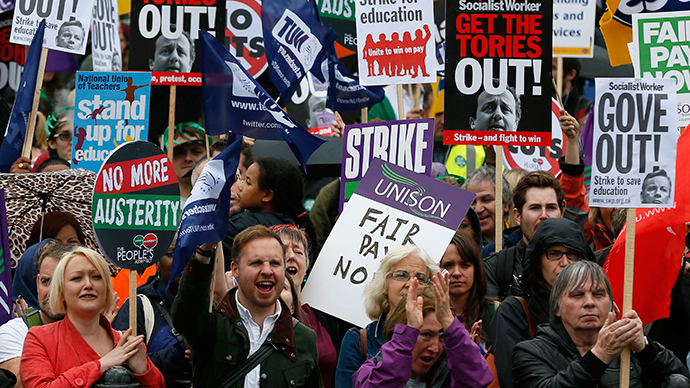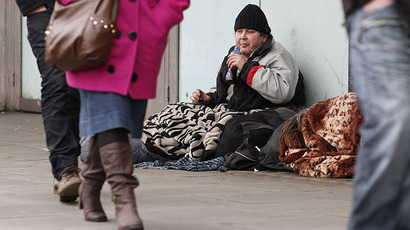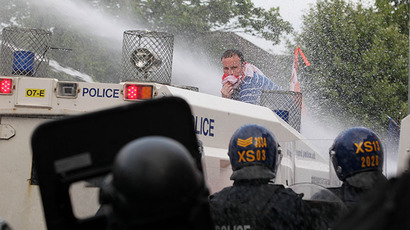Biggest Tory strike crackdown since Thatcher

The Tories are planning the most significant crackdown on union strikes since Margaret Thatcher’s reign. Criminal offences for picketing and a demand unions seek 50 per cent approval from their members prior to industrial action are key.
Following a recent walk-out by almost a million public sector workers, Prime Minister David Cameron issued a clear signal he would endorse stricter legislation governing strike action in the UK.
His rhetoric has already influenced the Conservative party’s manifesto for next May’s general election, which is coloured by far-reaching policy changes designed to make the organization and attendance of industrial strikes more difficult in Britain.
In light of these developments, Cameron has been brandished a "Bullingdon bully" by Unite general secretary, Len McCluskey.
"The whiff of hypocrisy coming from Cameron as he harps on about voting thresholds is overwhelming. Not a single member of his cabinet won over 50% of the vote in the 2010 election, with Cameron himself getting just 43% of the potential vote”, Mc Cluskey stated last week.
Unite recently published an opinion poll highlighting a growing public distaste for criticism directed at unions. The survey revealed that a majority of the British public endorsed workers’ right to strike in the most recent dispute, backed a £1 per hour pay rise for council workers, and opposed public sector pay cuts.
Despite this telling tide of public opinion, Cameron’s party believes a pledge to introduce regulatory changes to mitigate industrial strike action will prove popular amongst potential voters.
Under this policy shift outlined on Friday, the Tories made an array of promises. Such measures include making industrial strikes illegal unless unions secure a 50 per cent vote in ballot form in favour of such action, reforming protest regulations, criminalising illegal picketing, and doubling the notice unions must offer employers prior to striking.
The Guardian: Unions furious at Tory plan to make it more difficult for workers to strike. http://t.co/ZkyIX1x7Cmpic.twitter.com/fb83V1ISy9
— OldUnclePunch (@OldUnclePunch) July 18, 2014
The cabinet office minister, Francis Maude, stated he had formerly warned that intensified efforts on behalf of union leaders to push for “disruptive strike action without even persuading a majority of their members to vote” would provide a strong impetus to respond with concrete regulatory changes.
Defending the proposed policy shift, he added: "This sensible and proportionate package of reforms will help protect hardworking families and British businesses as part of our long-term plan to build a stronger economy".
But Len McCluskey attacked the Tory’s proposal to tighten legislation governing strike action in the UK, stating:
“It is utter hypocrisy for the Government to talk about mandates for trade unions when not a single member of the present cabinet would have been elected using the same criteria. The fact is not a single councillor in England has won 50% of the electorate, not a single MEP has reached the 50% threshold, Boris Johnson scraped in with just 37% in 2008 and the Government’s flagship Police Crime Commissioner election gained a risible 17% of the vote”.
The Trade Union Congress (TUC), which campaigns on behalf of 54 affiliated unions representing millions of UK workers, also sharply criticized the proposed reforms on Friday highlighting Britain’s strike legislation is already “some of the toughest of any democracy".
“You do not have to support every bit of industrial action to see that the right to strike is an important human right – and always one of the first things banned by any dictatorship”, a TUC spokesperson said.
The Congress concluded that the Tory’s proposed policy shift would breed inequality, ensuring “the fruits of recovery are reserved for the few and kept from the many”.














